Upper Stomach Pain
14
July
2021

What does upper stomach pain feel like?
As its name indicates, upper stomach pain is an ache that affects the upper part of the abdomen. This pain is usually centered and sourced in the upper abdomen; however, it can also spread to the chest and/or to the middle and lower part of the abdomen. Upper stomach pain is usually temporary and easy to cure. It can be solved by managing health problems such as gas and indigestion. Upper adnominal pain can be triggered by a variety of complications whether they were mild or serious. Minor conditions such as gas and overeating can cause upper stomach pain. The pain can also be caused due to a complication in the digestive tract, or a condition that affects the kidneys, the gallbladder, and the stomach. Complications that attain the heart, the lungs, and abdominal muscles can also lead to upper stomach pain. If the pain does not resolve in a matter of two to three days, then it is better for the patient to check with a healthcare provider who will run some tests and examinations to detect the presence of any dangerous or serious issue that requires treatment.
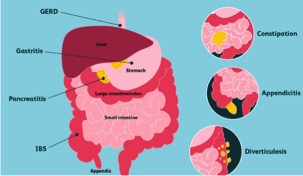
What are the symptoms of upper stomach pain?
Upper stomach pain is usually accompanied with many symptoms that vary according to the source and the trigger of the pain. The underlying disease or complication is the main factor that triggers certain symptoms. Here are some signs that symptoms that could indicate upper stomach pain:
-
Symptoms triggered by complications in the digestive system
Belching
Abdominal swelling and bloating
Abdominal cramps
Bloody stool
Diarrhea
Constipation
Gas
Nausea
Vomiting
-
Additional symptoms that accompany stomach pain can include:
Fever
A cough
Enlarged glands (such as the lymph nodes and the spleen)
A general sensation of sickness
Muscle pain, numbness, and spasms
Unexplained and unintentional weight loss
A rash
-
Symptoms that indicate the presence of a fatal condition include:
Unresponsiveness
Passing out
Dizziness
Rigidity in the abdomen
Rectal bleeding
Vomiting blood
Sudden sharp and unbearable abdominal pain
High fever
Chest pain and palpitation
Shortness of breath
Tachycardia (rapid heart rate)
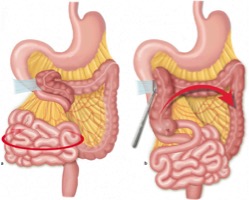
What are the causes that lead to upper stomach pain?
A viral, bacterial, or parasitic infection of the digestive tract
Gastritis: The inflammation of the mucosa (the stomach lining) causes abdominal pain, indigestion, bloating, and nausea.
Pancreatitis: The inflammation of the pancreas.
Hepatitis: The inflammation of the liver.
A stomach ulcer
Crohn’s disease: The inflammation of the digestive tract leading to fatigue, abdominal pain, and unintentional weight loss.
Diverticulitis: The inflammation of a section of the colon.
Celiac disease: This condition prevents people from eating gluten, since it causes damage to the small intestine. The immune system damages the small intestine whenever gluten is consumed.
Lactose intolerance: A food intolerance such as lactose intolerance causes indigestions as well as sharp upper stomach pain
Irritable Bowel Syndrome (IBS): This is a common case that can affect anyone. It causes bloating, constipation or diarrhea, but no actual harm to the digestive system.
Gastroesophageal reflux disease (GERD): This condition occurs when the stomach acid flows back up and into the esophagus which connects the stomach to the mouth, causing a burning sensation in the upper abdomen as well as in the chest.
Kidney stones: The formation of kidney stones can cause abdominal pain especially in the upper section of the abdomen.
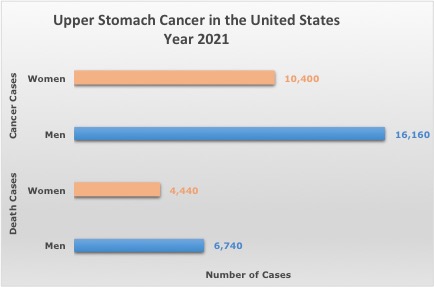
Here are some other conditions that could lead to upper stomach pain:
Hiatal hernia: A hiatal hernia is caused due to a weakening in the diaphragm which will then cause the stomach to herniate into the chest
Pleurisy: A pleurisy is an inflammation around the lungs
Pneumonia: Pneumonia is the inflammation of the alveoli (the lung’s air sacs). This conditions causes shortness of breath as well as upper abdominal pain.
Shingles: The reactivation of chicken pox virus causes a rash that forms in a stripe causing severe and burning pain.
Strained or ruptured muscles: Tension in the muscles around the abdomen and the chest can trigger sever pain in the upper part of the abdomen as well as around the chest.
A broken rib: A broken rib can cause sharp and sever pain around the chest as well as in the upper abdominal region.
Some other life-threatening causes can trigger stomach pain. here are some of the fatal conditions:
Abdominal abscess: The rupture of the appendix can cause abdominal abscess as well as the spread of an infection all over the abdomen. This condition causes severe pain as well as tenderness and swelling all across the abdomen.
Bowel perforation or obstruction
Chemical or food poisoning
Colonic volvulus: this condition represents the twisting of the colon which can be life threating and very painful.
A heart attack: A heart attack causes chest, and upper stomach pain that spreads through the left arm causing a throbbing pain.
Pancreatitis: The inflammation of the pancreas can be dangerous and causes severe pain.
Peritonitis: The inflammation of the abdominal tissues (This condition is mainly caused by a ruptured appendix).
Cancer in an abdominal organ: The growth of a tumor in one of the abdominal organs can lead to a loss of appetite, jaundice, indigestion, change in stool, blood in stool, fatigue, fever, and other serious symptoms that need to be examined. It is not a very common condition, and it affects men more than women, according to a study done by the American Cancer Society in 2021.
PS: Pregnancy can also cause upper stomach pain due to changes in the body to help make room for the growth of the fetus. Braxton-Hickes contractions, food sensitivities, and allergies can also cause upper stomach pain.
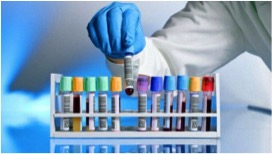
Diagnosing upper stomach pain
The diagnosis procedure that helps detect the causes and the triggers of upper stomach pain are many. The healthcare provider will first run some physical examinations such as applying gentle pressure to the painful area to detect the intensity as well as the location of the pain. After checking your medical history, the healthcare provider will proceed with other tests such as:
Barium Swallow: It is an X-Ray imaging test that detects swallowing, ulcers, and hernia conditions. The patient swallows a liquid called “barium” which enables the stomach and esophagus to be visualized clearly through X-Ray images.
Upper Endoscopy: A camera attached to a ling tube will be inserted into your digestive system through your mouth after undergoing anesthesia. The patient is first sedated before the examination starts. The upper part of the digestive track can be visualized and examined through an upper endoscopy, enabling the detection of any abnormality in that area.
Imaging tests: An abdominal ultrasound, an x-ray, a CT Scan, or an MRI could be required to detect other probable causes that are triggering the pain.
Blood tests: A blood test will help detect any hormonal and enzyme level imbalances.
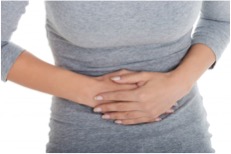
How to treat upper stomach pain
After the healthcare professional provides you with diagnosis, he/she will guide you through the needed treatment methods. Here are some of the treatment methods that could cure and reduce upper abdominal pain:
-
Adopting a Healthier Lifestyle
Many lifestyle changes and adaptations can help reduce upper stomach pain. personalizing a better diet that is convenient to you is one of the main ways to create a better dietary lifestyle. If you have any food allergies or intolerances, it is important to form a dietary plan that is free from these nutrients that trigger pain and discomfort. Eating food high in fiber, staying hydrated, and avoiding meals two to three hours before bedtime are important measures that help maintain a healthier digestive tract.
-
Home remedies to relieve minor pain
Heating pad: applying heat on the painful area can relieve the pain. the heat helps relax strained and tense muscles which can be triggering the pain.
Drinking water and eating food high in fiber: dehydration can be causing stomach pain.
-
Medications
The healthcare professional might prescribe medications in order to reduce the pain and to cure the causes of the pain.
Over the counter medications: Mylanta and x-gas can help with gas pain. Anti-acid or an acid reducer can help with the reduction of heartburn and acid reflux. Laxatives can help with constipation. However, it is important to stay away from NSAIDs like Advil, Midol, and Aleve because they can irritate the stomach.
-
Surgery
Appendix complications: An inflamed or ruptured appendix could need immediate surgery to removes the appendix as well as any infection that has spread across the abdomen.
The removal of a tumor
If you or anyone you know is suffering from pain, call us today on (469) 562 4188 to book an appointment with our expert doctors.